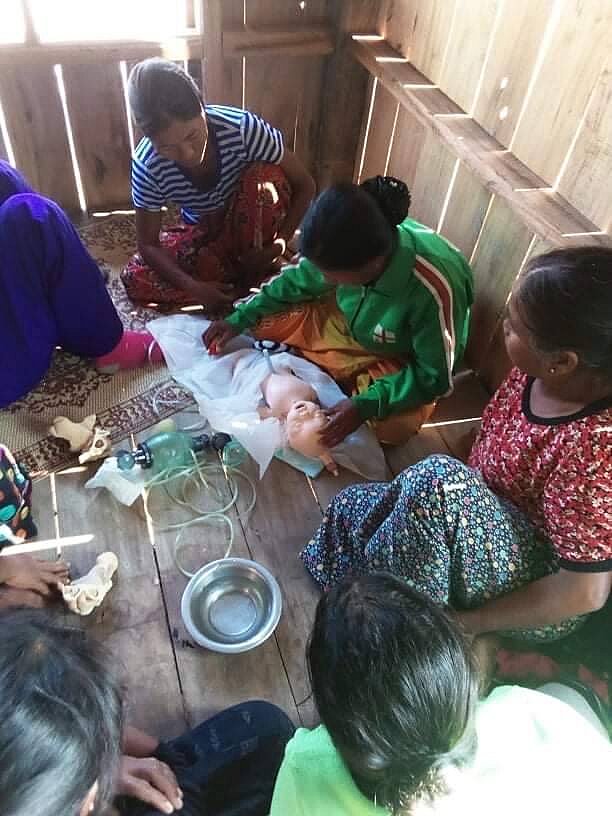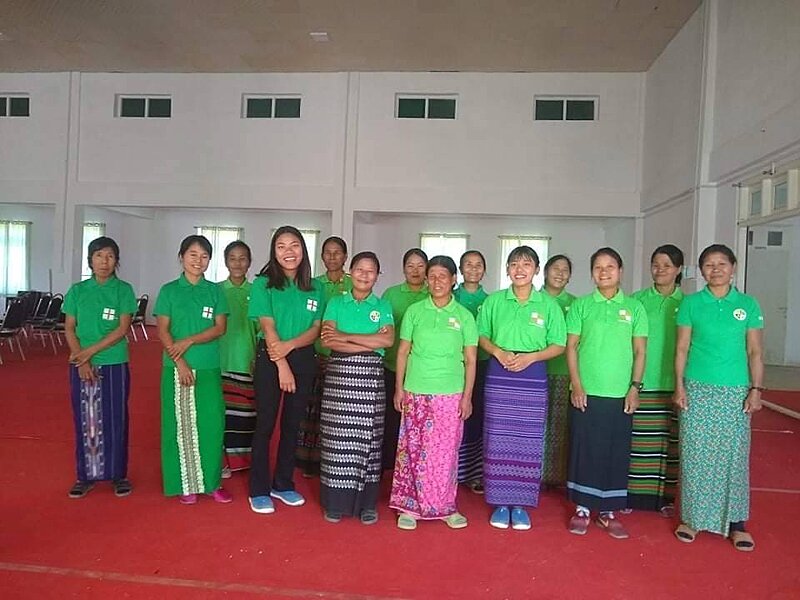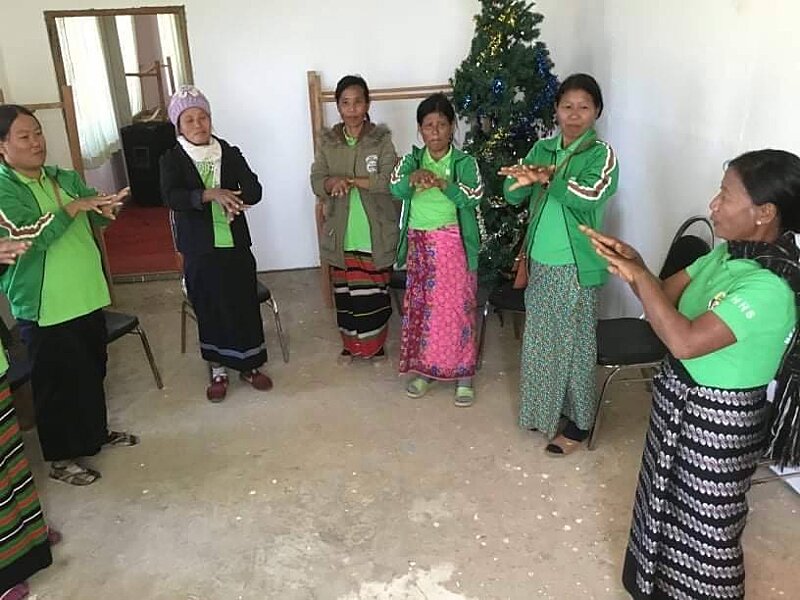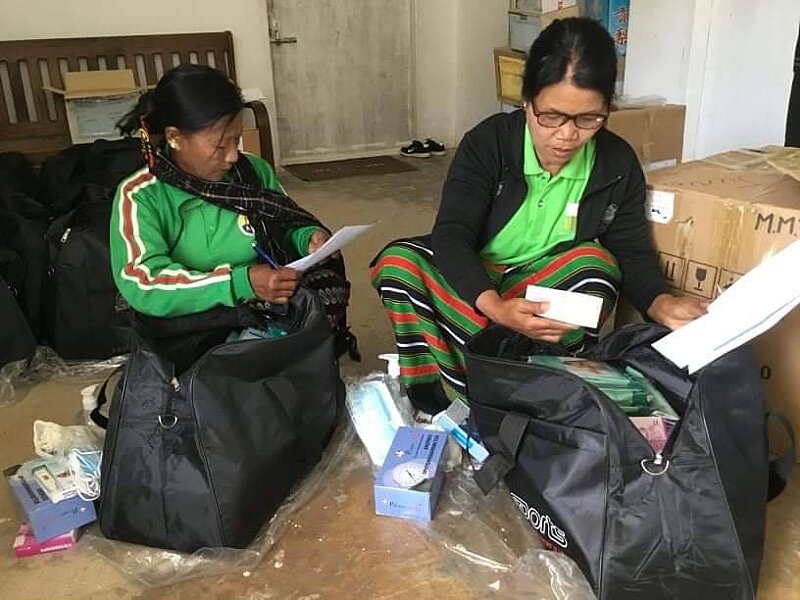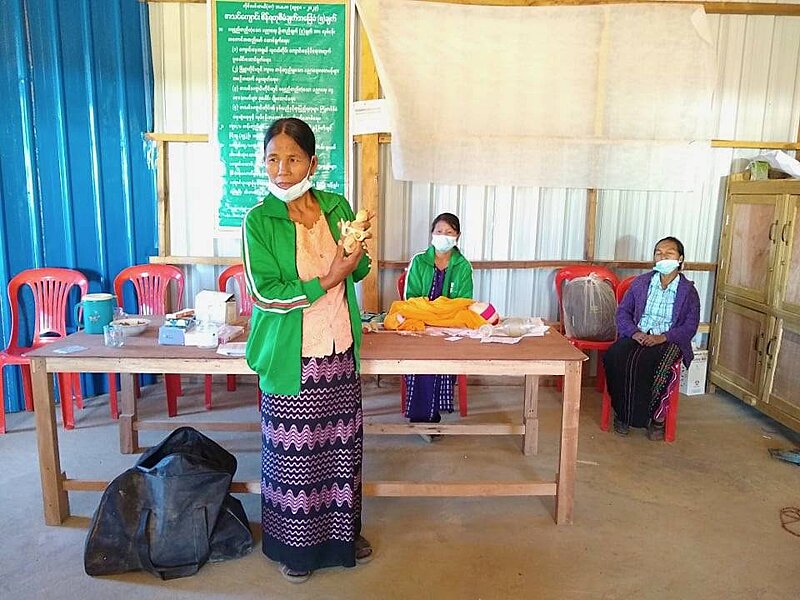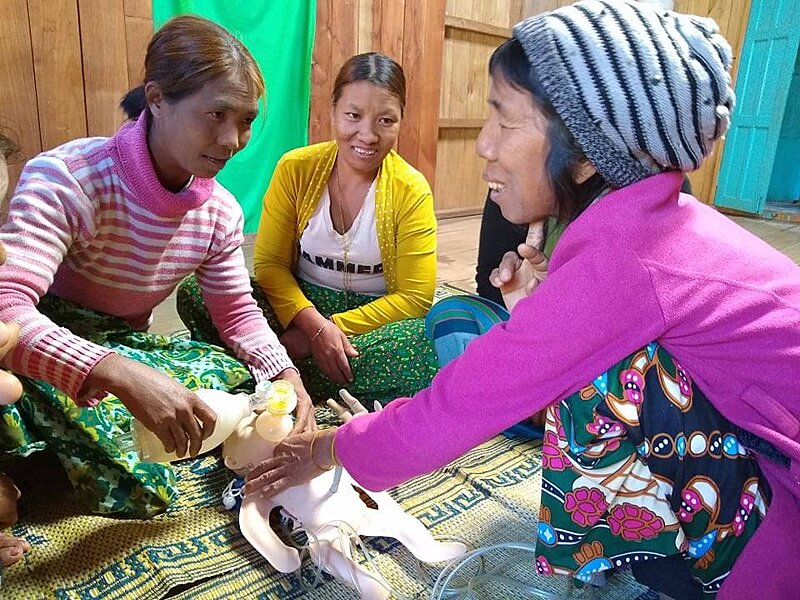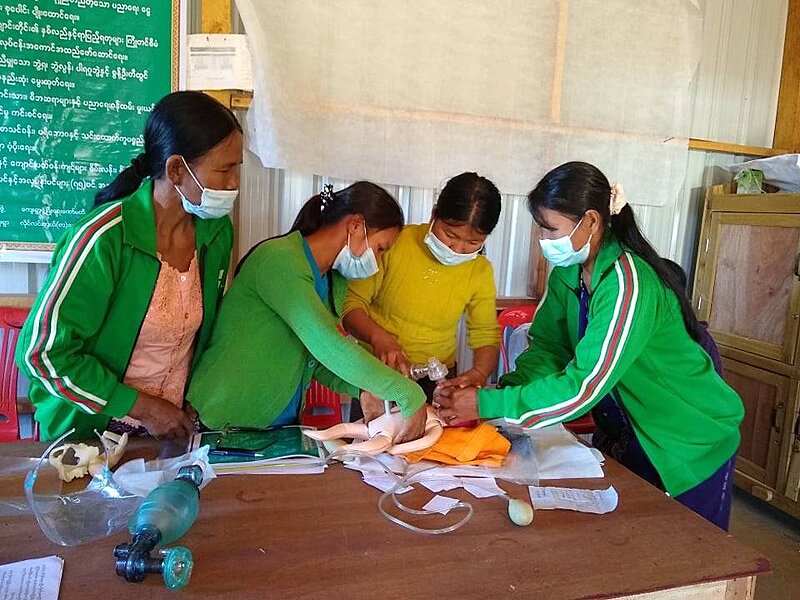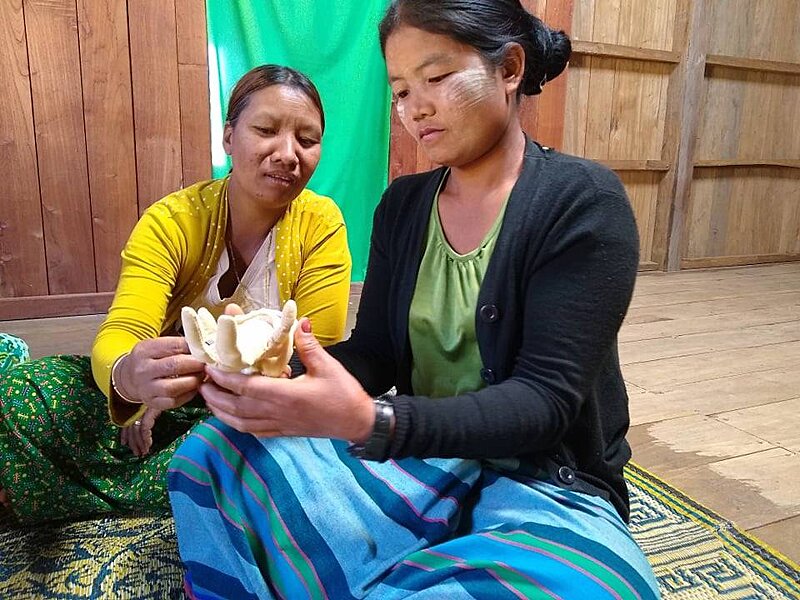Local women expanding TBA training to new villages
Posted on 25th January 2021 by Philippa Wilford
In December, 12 local women who had completed our Trainer of Trainers (ToTs) course delivered maternal and neonatal training into 12 remote villages in western Myanmar.
The ToTs were paired up based on their ability to speak the local language, and to encourage a good skill mix. Each ToT pair went to two villages to support training of local Traditional Birth Attendants (TBAs) as well as assist in educating the local community in key health topics. The ToTs also supported pregnant women and in some cases were in the right place at the right time to assist in deliveries alongside the TBA. Twenty four TBAs and an additional 72 local women received training and support on a range of topics from health in pregnancy and complications in birth, to breastfeeding and post-natal care.
One of the ToTs recounted her arrival in the village:
“The village welcomed us so warmly. We stayed for two days running a training workshop with both theory and practical sessions. The workshop went very well and the training was gratefully received. We taught about the importance of kangaroo care after delivery which is when the baby is put skin to skin with the mother immediately after birth. We taught the TBAs the importance of waiting for the placenta to come out naturally and warned of the dangers of puling or pushing the placenta out which is common practice in the villages. We also explained the importance of putting the baby straight to the breast and ensuring that the first milk from the mother was not thrown away. The TBAs and local women who attended the workshop were very happy to learn about this and so keen to pass on their new knowledge and apply it to their work.
One night whilst we were there, there was a delivery and the TBA wanted to immediately apply all her new knowledge. Unfortunately the umbilical cord was very short and the TBA didn’t feel it was long enough to place the newborn on the mothers chest immediately. But I dried the baby, placed the baby in a warm blanket, cut the umbilical cord and then initiated kangaroo care by placing the baby skin to skin with the mother whilst waiting to deliver the placenta. The mother and her family were so delighted, thankful for our help and grateful for our encouragement and support for the TBA.”
This testimony reflects the incredible need for the ToTs to be physical present in the village to support the TBAs as they apply the skills and knowledge given to them during teaching workshops. Follow up visits and ongoing support are just as vital, not only for continued professional development, but also to ensure the TBAs are supported in a wide range of situations.
The example given in this testimony shows how even with classroom knowledge, every pregnancy is unique and every birth experience is different. Despite the challenges that may present, in many cases it is still possible to meet an excellent standard of practice. Initiating skin to skin (kangaroo care) and putting the baby to the breast for the first milk can still be achieved despite unexpected challenges if the TBA has a good understanding and is able to adapt their skills and problem solve by looking for alternative solutions.
Shortly after the outreach visit, the ToTs traveled to Lailenpi for a 3-day workshop with the Health & Hope medical team.
The workshop provided the ToTs with the opportunity to share birth stories, discuss the training delivered, reflect on best practices for working in a community setting and identify ways in which they can improve the service they offer. At the workshop, the ToTs also stocked up on essential supplies, such as clean delivery kits, gloves, soap, monitoring equipment, vitamins and pregnancy supplements.
Thank you
Your support for this project is so important as it continues to equip local women with the skills to respond to the challenges of child birth within remote rural communities in the jungles of Myanmar. The knowledge and practice change as a result of this work has a radical impact on both the wider family as well as the new-born child, impacting health outcomes and saving lives.
Click here to find out more about the Maternal & Neonatal Health project and how you can support this work.

